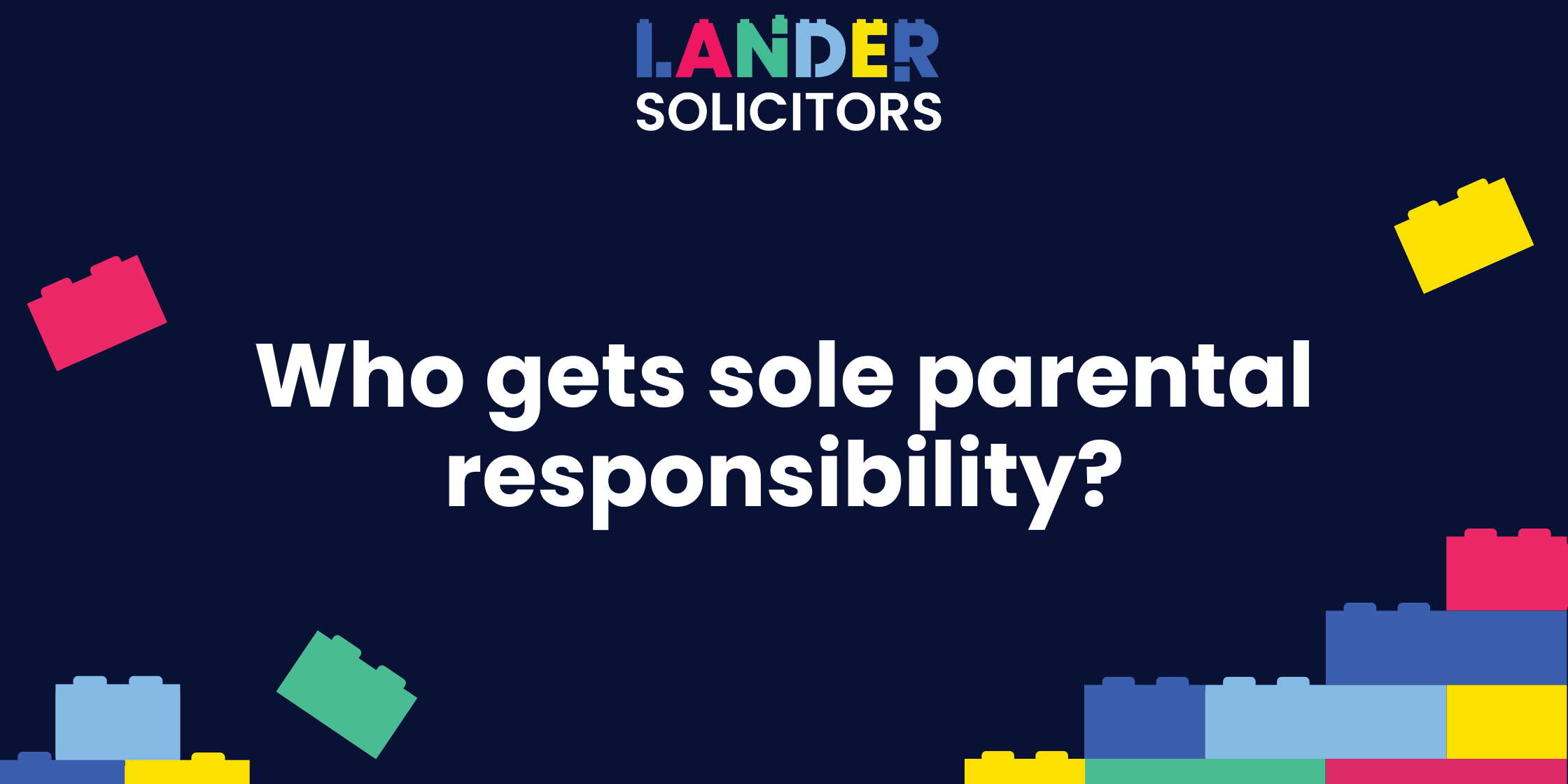One of the biggest worries many divorcing parents face is: “If I separate from my partner, will I be granted sole parental responsibility or will my ex?”
The short answer? Not necessarily.
But the details depend on your circumstances, your parenting relationship, and what’s ultimately in your child’s best interests.
What does sole parental responsibility mean?
When separating, it’s natural to wonder which parent will end up with decision-making power, or whether those decisions will still be shared. In some cases, the court may grant sole parental responsibility to one parent. In others, it remains joint. But how is that decision made?
In Australia, parental responsibility refers to the legal duties, powers, and decisions parents can make about their child’s long-term wellbeing, such as education, healthcare, and religion.
Under recent changes that were made by the Family Law Amendment Act 2023, the focus is now even more strongly placed on the best interests of the child, rather than defaulting to equal shared parental responsibility or time.
This means that parenting arrangements are assessed on a case-by-case basis, rather than being automatically split 50/50.
What is sole parental responsibility?
If a parent is granted sole parental responsibility, they have the authority to make major long-term decisions about the child without needing the other parent’s input.
This arrangement is usually ordered when:
- There are serious safety concerns, like family violence or abuse
- One parent is absent, unwilling, or unable to co-parent
- The court deems it’s in the child’s best interests
Sole parenting responsibility doesn’t always mean the other parent won’t ever see the child, but it affects how decisions are made about their upbringing.
Is sole parenting responsibility the same as sole parental responsibility?
Many people use the term “sole parenting responsibility”, but the correct legal term in Australia is “sole parental responsibility”. Both refer to the authority to make major long-term decisions for a child, but only “parental responsibility” is used in the Family Law Act.
What is joint parental responsibility?
This is the more common arrangement, where both parents share decision-making responsibilities. It works best when:
- Both parents are willing to cooperate
- Communication is respectful (even if not perfect)
- There’s a stable environment for the child
Joint parental responsibility allows both parents to remain actively involved in long-term planning, even if the child lives primarily with one.
Will I still see my kids?
In most situations, yes.
Even if one parent is granted sole parental responsibility, that doesn’t automatically mean the other parent won’t have time with the children. Parenting responsibility is about who makes major long-term decisions, not day-to-day care or time spent.
Unless there are serious safety concerns, the court generally supports a child having a meaningful relationship with both parents.
Let’s talk about your next step
Whether you’re seeking advice on sole parental responsibility, want to understand joint parental responsibility, or have questions about applying for parenting orders, our experienced team can help.
Worried about how divorce might affect your relationship with your children?
Reach out today for advice tailored to your situation. We’ll help you protect your role as a parent and work toward the best possible outcome for your family.
DISCLAIMER – The information provided in this blog is general and does not consider your individual legal needs or objectives. It does not constitute personal advice and is for informational purposes only. We recommend seeking out professional and independent legal advice from qualified Australian lawyer to advise on your individual situation before acting on any information contained below. Lander Solicitors Queensland accepts no express or implied liability for negligence or contractually for reliance on any information provided. Liability limited by a scheme approved under Professional Standards Legislation.


